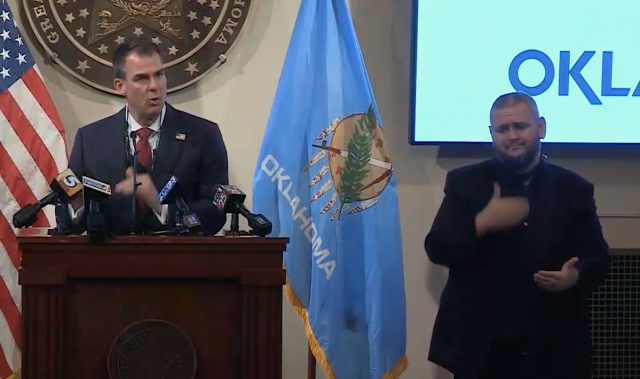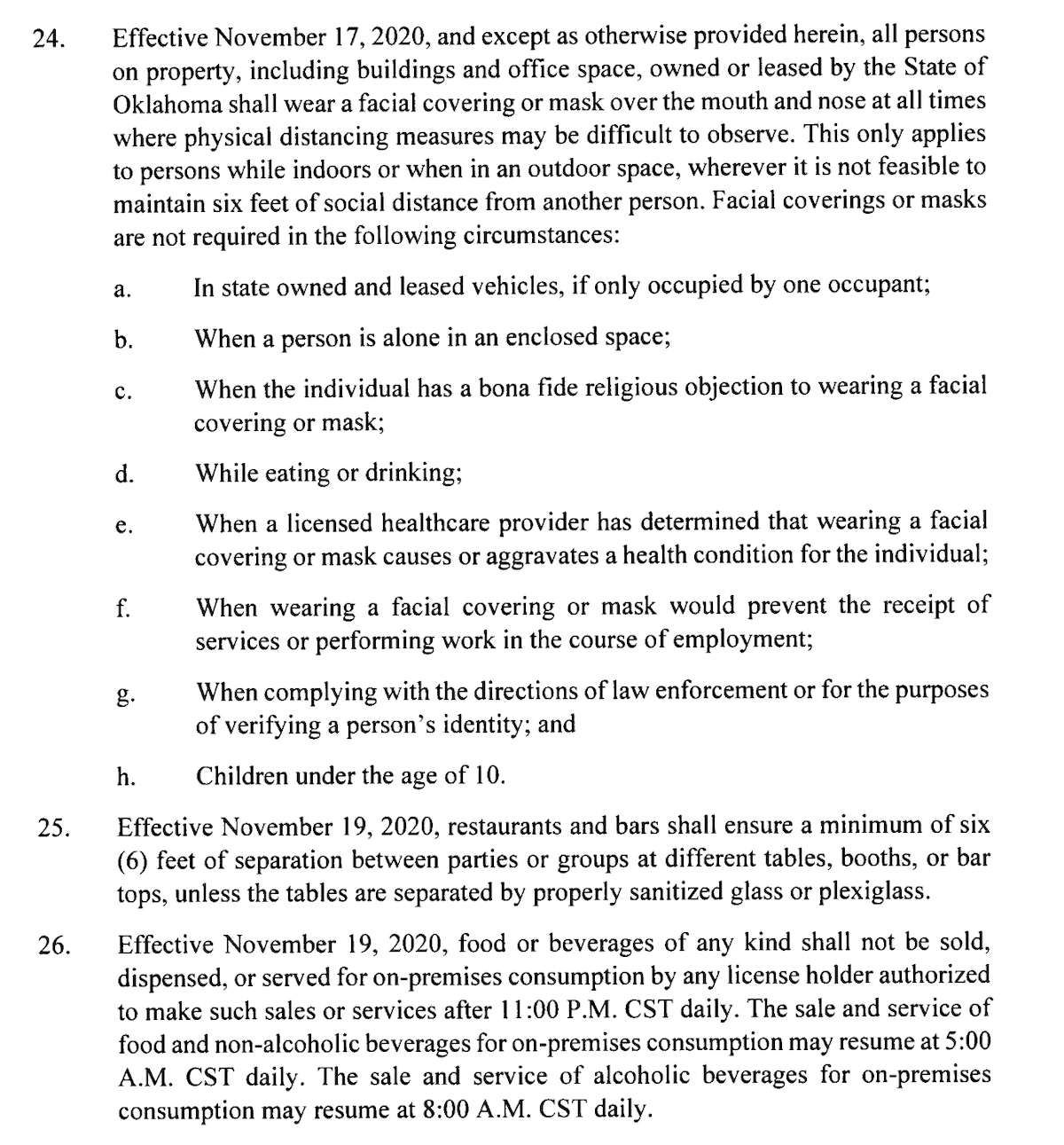

(Editor’s note: This article originally appeared under the headline “Stitt acts: Restaurants, bars must close nightly by 11” prior to the exact language of Stitt’s executive orders being released. The headline has been changed to reflect that bars and restaurants can remain open beyond 11 p.m. but cannot serve items for on-premises consumption after that time.)
Nearly a week after pleading with Oklahomans to wear a mask and take “personal responsibility” to slow spread of the novel coronavirus, Oklahoma Gov. Kevin Stitt announced three new executive order requirements today: mandatory spacing of tables six feet apart in restaurants, mandatory nightly termination of sales for on-premises consumption at restaurants and bars by 11 p.m., and mandatory mask wearing for state employees.
The restaurant and bar rules are scheduled to take effect Thursday, with the state employee mask mandate taking effect immediately.
Stitt’s three new orders stop short of implementing the statewide mask mandate that many believe the governor should announce, but they are his most stringent new restrictions in about seven months.
“We need to slow the spread of this virus,” Stitt said. “Based on the data in our state, particularly the rise in hospitalizations, now is the time to do more. Oklahoma, I need your help.”
Stitt said the three new orders have no expiration date yet, and he said they are not “magic bullets.” Methods for enforcement of the restaurant provisions are still to be determined, Stitt said.
“The state obviously has the ability to pull licenses from different businesses. We haven’t discussed that because again we are just rolling this out right now,” he said. “Not even thinking about the enforcement at this point.”
Stitt said the spacing of tables and the early closure of late-night restaurants and bars “are sacrifices worth making.”
“It’s up to all of us. This virus is spreading across the country right now. It’s not just Oklahoma,” he said.
‘It’s going to be difficult’
Stitt was joined at his Monday press conference by Jim Hopper, president and CEO of the Oklahoma Restaurant Association, who said his group supports the new restrictions. He also spoke about the importance restaurants hold to the broader economy.
“It’s just so very very important for this industry to survive, so whatever we can do in cooperation and in partnership with the governor and the health department in order to survive, that’s what we need to do,” he said. “It’s going to be difficult, and it will take away sales.”
But Hopper said what his members do not want to experience is a full shut down of in-person dining like other states are seeing again this fall.
“We don’t want that to happen,” he said.
‘It’s just been community spread’
Commissioner of Health Dr. Lance Frye also spoke Monday, answering a question from media about the origins of Oklahoma’s recent 19 percent increase in COVID-relatex hospitalizations.
“There’s really not been anything out there,” he said. “It’s not been an institutional increase like an outbreak. It’s just been community spread.”
Stitt said his primary goals for managing the pandemic are protecting lives, keeping businesses open and getting all kids back in school in person.
“The CDC has found that not being in school is significantly impacting the mental health of our young people,” Stitt said. “A vaccine is on its way, but we need to buckle down until then. I know we’re all tired, but this is really important. I need your help.”
Stitt’s latest executive order is viewable here.

(Correction: This story was updated at 3:55 p.m. Monday, Nov. 16, to correct a statistical reference.)




















